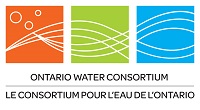Dr. David Major is a Branch Manager and Principal of Geosyntec’s Canadian Operations, and manages the development and deployment of remediation strategies. Geosyntec is an international environmental consulting firm that has worked on projects with Fortune 500 companies, the U.S. Department of Energy, the Department of Defense, and NASA.
Geosyntec partners with private sector firms, government and universities for the remediation of chemicals in the environment, management of urban watersheds to reduce pollutant loadings and protection of endangered species from the impacts of stormwater runoff.
Dr. Major’s expertise is the in situ biodegradation of chlorinated solvents in natural or engineered environments. He has also aided many researchers from the Universities of Waterloo, Toronto, Tennessee, Stanford, Western Ontario, Edinburgh and Strathclyde in developing and successfully commercializing a variety of groundwater and soil remediation and monitoring technologies. These include reactive metals, microbial cultures, and molecular (genetic) tests. He is currently responsible for managing the field development and commercialization of a new patented thermal technology (STAR) to treat coal tars and other heavy hydrocarbons in soil and groundwater based upon smouldering combustion.
Dr. Major is a University of Waterloo Science Alumni of Honour, and has been inducted into Space Technology Hall of Fame.
Geosyntec plans to use the Borden groundwater remediation facility in partnership with SOWC’s watershed node to demonstrate the novel STAR remediation technology. STAR (Self-Sustaining Treatment for Active Remediation) is an exciting new technology to treat subsurface contamination by oily liquids such as solvents or petroleum.
The watershed node will enable the investigation of watershed-scale hydrologic processes with specific focus on the influence of urbanization and associated land use management in watersheds. The infrastructure within the watershed node will provide SOWC users with access to integrated climatic, surface and subsurface monitoring networks in three instrumented subwatersheds consisting of conventional and emerging sensor arrays interconnected through wireless telemetry. In addition, the facilities for the investigation of bedrock aquifer systems and groundwater remediation technologies will provide SOWC users like Geosyntec with access to capacity for testing and demonstrating technology for groundwater remediation that is truly unique.
As we build the SOWC platform we are very interested in talking with potential users and collaborators. Stay tuned for updates or contact us to see how we can work together.

